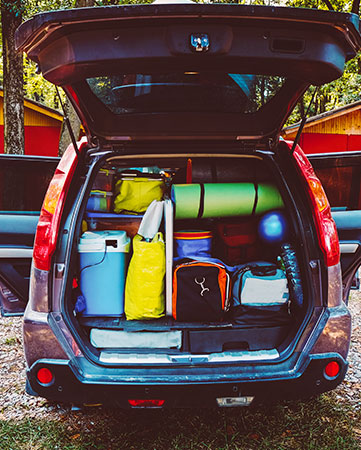If you were in a car accident in Indiana with someone who had loose cargo in their vehicle, then you might be able to hold them at least partially responsible for your injuries. Loose cargo can turn into projectiles in a car accident.
What Counts as Loose Cargo?
Many drivers don’t realize that empty bottles and trash count as loose cargo. These items could contribute to additional injuries when you are in a car accident. Tools, PPE and pieces of equipment in your vehicle also count as loose cargo. You should secure the items in your car to minimize your liability in a car accident.
Loose cargo causes approximately 13,000 of the injuries from car accidents every year. A 20-pound object traveling at 55 mph exerts 1,000 pounds of force, which is powerful enough to rip off the arm of a crash test dummy.
What Can You Do?
Out of necessity, you transport suitcases, groceries and other important items in your car. You can at least pack things in the safest way possible. You should never leave trash, empty bottles and other unnecessary items in your car.
Pack equipment and other items in the trunk of the car until it is full before putting anything in the cab of the car. The trunk is a safer place for your loose cargo. You may want to tie down and secure your loose cargo when possible as well.
Loose cargo is a detail that you should check for after a car accident because it places more liability on the other driver if their items became projectiles and injured you. Most people are not in a state to investigate a crash scene directly after impact, so you can inform your passengers of what they should look for and take pictures of in case you can’t. In addition, a personal injury attorney may help analyze the crash scene photos to find evidence of the other driver’s liability.


